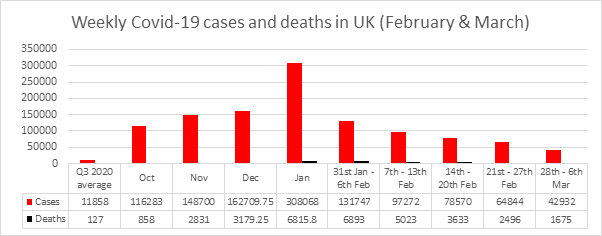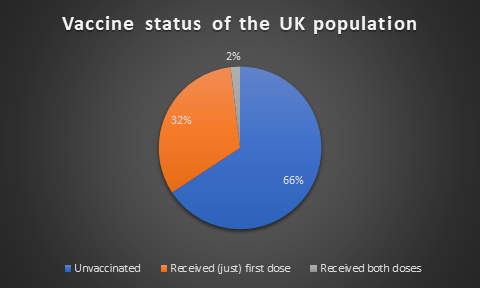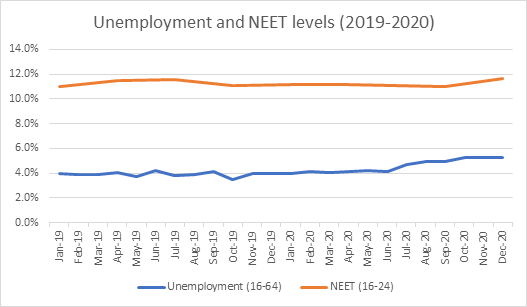This is the 48th of a series of bulletins produced by ISE to update members on key data and policy related to Covid-19. This bulletin covers the period 4th March – 10rd March 2021.
You can access all of the Covid-19 bulletins on ISE insights.
Latest Covid-19 data

Data taken from Wikipedia and from the government’s Covid-19 dashboard.
The UK has now had over 4.2 million identified Covid-19 cases and 143,000 deaths (with Covid on the death certificate). The R rate is estimated to be between 0.7 and 0.9 with the daily infection rate shrinking by between 3% and 5%.
The number of cases and the number of death have been falling for eight weeks. The number of new cases is now well below the October average although it is still considerably higher than it was at the end of the summer. The number of deaths has also been dropping for six weeks and is now below the level that it was at in November.
Covid news

Data from the government’s Covid-19 dashboard.
- Boris Johnson notes that the roadmap to unlocking is dependent on the data and on people’s behaviour.
- The Office for National Statistics have released new data on the prevalence of Covid-19.
- A new report argues that there is no evidence that the track and trace system is having an impact on Covid rates.
Education
- School pupils have returned to school this week. There are concerns about how the government’s ‘catch up’ scheme is working.
- Universities are still not teaching most students on campus. But Oxford University has been criticised for continuing to deliver MBA teaching face-to-face.
- Tristram Hooley discusses what happened in last week’s debate on career guidance and argues that after Covid career guidance matters more than ever.
The economy
- The Governor of the Bank of England says that the UK economy will never return to its pre-Covid pattern.
- More analysis of the budget has been coming in this week. The Conversation offers reactions from a variety of experts, who predictably can’t agree on much! Stephen Schifferes argues that Sunak’s strategy is essentially to hope for recovery with no additional long-term public spending. Lisa Scullion and colleagues argue that the uplift to Universal Credit is not enough. While Tristram Hooley looks at what it means for student employers.
- Events bookings are surging for after the end of lockdown restrictions in June.
The labour market

From the Office for National Statistics data on unemployment and NEET. From the Office for National Statistics data on unemployment and NEET.
- The data from the Office for National Statistics throws lights on graduates’ labour market outcomes during the coronavirus (COVID-19) pandemic.
Changing patterns of work
- Pearson are cutting their office space as part of a restructure. Emma Jacobs asks whether young people really need to return to the office.
Student recruitment and development
- The new graduate route for immigration will open to international students on 1st July 2021.
- Debbie McVitty asks whether universities can make a difference to inequality in graduate recruitment. While Jo Brickell looks at gender inequality in student recruitment. An ISE webinar asks what employers can do to improve social mobility and racial equality.
- Dan Hawes offers advice on staying ahead in graduate recruitment.


0 Comments